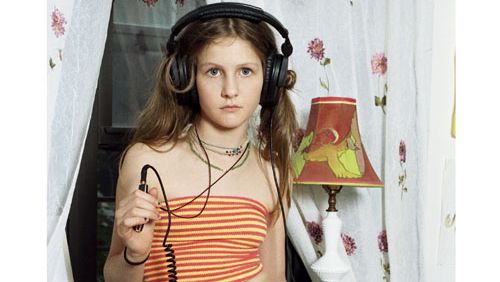America's War on Girls
Author Caitlin Flanagan wants to protect teen girls from the Internet and shield them from racy song lyrics. Is she right — or crazy old-fashioned?

In the early 1990s, Caitlin Flanagan was teaching at the famous Harvard School for Boys in Los Angeles when it merged with the equally prestigious Westlake School for Girls. Flanagan, a mother of two sons, became fascinated by adolescent girls — and was convinced that they needed protection from our oversexed culture. Marie Claire caught up with the 50-year-old author of the new book Girl Land to learn more.
Why do you say that puberty is more intense for girls than for boys?
When boys get their first wet dreams, they think, Whoopee! A new bodily fluid — bring it on! But for a girl, she's coming to terms with, This is blood. This is my uterus preparing me for reproducing. And I think on some deep level, a reality hits.
You write that the mass media is driven by men and "does not mean girls well." How so?
We've never had a culture that's more predatory toward or more contemptuous of girls, that says, "We're going to empower you, but we're also going to have songs on the radio about how you're on your knees servicing men." The more we protect girls from this pornography-drenched culture, the better off they'll be as women.
What about strong, sexy female singers, such as Beyoncé or Rihanna? Are they good or bad for girls?
I don't see anything negative about Beyoncé. I loved "Single Ladies." She sort of sang, "Marry me." I thought that was a sexy way of giving a conservative message. But Rihanna kind of disturbs me. Her song with Eminem, "Love the Way You Lie," suggests that there's something romantic about a man trying to restrain his physical passion — in a sense, from beating her — and I don't think that's good.
But aren't teen girls today more in control of their sexuality than in the past?
Certainly. Take the Bristol Palin example. A girl can get pregnant, and if she doesn't have an abortion, she doesn't have to be sent to a home for wayward girls. But I think girls are making decisions without much guidance. They know more about putting on a condom at age 12 than grown women do, but they're not morally or emotionally guided.
Was it better when you were a teen, when dating was more formal?
No. I shared a story in the book about my almost date rape to show that girls were in a lot of jeopardy then, too. But girls could use more supervision from parents. We owe them that.
You say that parents shouldn't allow girls to have an Internet connection in their rooms. Why?
With Facebook and Twitter, girls have to deal with unrelenting social lives. In 11th grade, I had the goofiest bright-green sweat suit and would zip myself into it when I came home. I'd have a snack and sit in my room for two hours and be totally comfortable and not have to be Cait Flanagan. But if you can come home and iChat, it never ends. They need a break.
Get exclusive access to fashion and beauty trends, hot-off-the-press celebrity news, and more.
You don't quote girls in the book, and the tone is rather academic — how do you expect to engage girls on these issues?
I was talking endlessly to girls but didn't want to formally interview them. I wanted to give them a book that would treat their lives just as seriously and rigorously as boys' and men's lives are treated in the books they read in school. I quote a lot of girls from different eras, whether it's Anne Frank or Tammy Bellah. I wanted girls to hear those voices, saying, "I felt this, too."